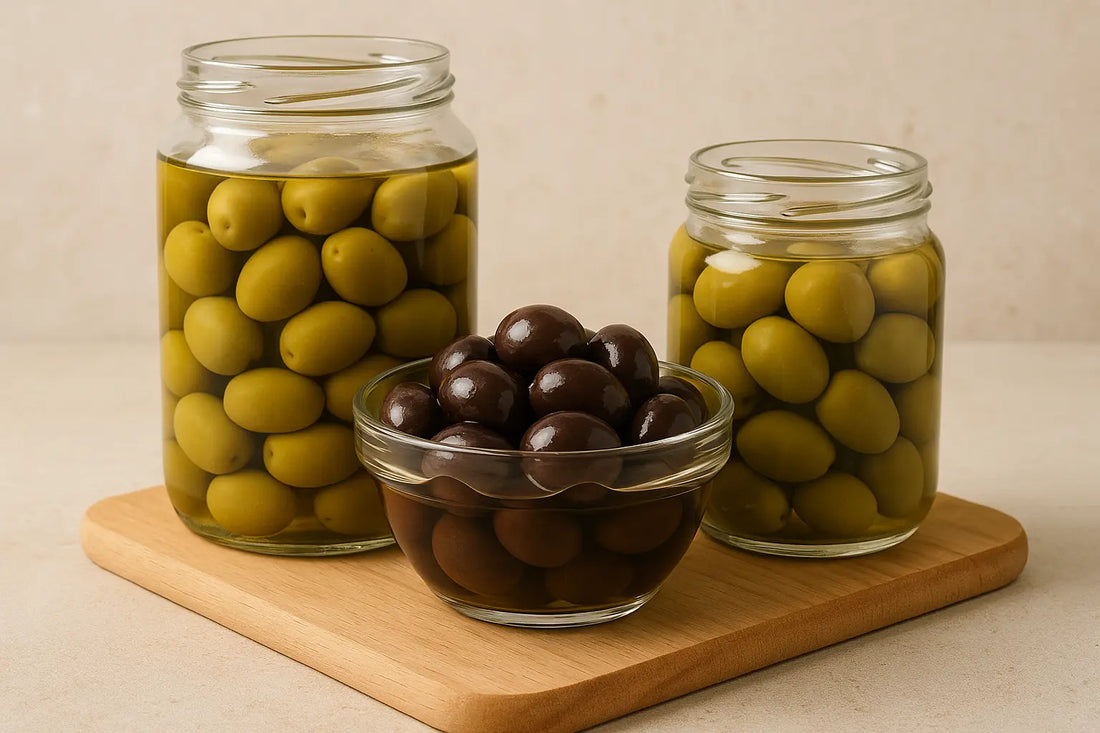How Pickled Olives Are Made: Traditional Brining and Modern Methods Explained

Pickling is one of the oldest food preservation methods in the world. For centuries, people have used salt, water, and time to transform seasonal fruits and vegetables into long-lasting pantry staples full of flavor. Among the most iconic of these preserved foods are olives — particularly green and black olives pickled in brine.
At our store, we proudly offer a wide selection of pickled olives crafted using time-tested techniques rooted in Mediterranean tradition. In this article, we’ll walk you through how pickled olives are made — from traditional brining to modern chemical methods — and what makes a high-quality olive stand out.
Traditional Brining: A Time-Tested Method
Traditional pickling involves immersing olives in a saltwater solution called brine. The typical ratio is 20 to 40 grams of salt per liter of water. This high-salinity environment prevents spoilage and supports the development of beneficial bacteria.
In many cases, olives are weighted down to remain fully submerged — traditionally with flat stones or modern fermentation weights. This process can take several weeks, during which natural fermentation occurs, allowing lactic acid bacteria to flourish. These bacteria preserve the olives while enhancing their taste and texture.
Occasionally, a harmless white layer of kahm yeast may form on the surface of the brine. It can simply be removed and does not affect the safety of the pickling process.
Chemical & Modern Pickling Methods
In more modern or commercial settings, olives may be soaked in brine and then transferred to vinegar solutions. This step helps reduce the water content and intensifies the flavor. Vinegar also acts as a preservative and gives olives a tangy finish.
Some producers may add food-safe firming agents like calcium chloride to help olives retain their crispness. Others use alum (aluminum sulfate) — although its use is permitted but not recommended by the U.S. FDA.
For shelf-stable pickles, preservatives such as sodium benzoate or EDTA might be used in small quantities. At our store, we aim to minimize the use of additives whenever possible to keep our olives natural, delicious, and safe.
Fermented vs. Non-Fermented Pickles
When olives are naturally fermented (as in traditional brining), the preservation is driven by Lactobacillus bacteria, which produce lactic acid — a natural and flavorful preservative. This is different from "quick pickles" or refrigerator pickles, where vegetables are marinated in vinegar without fermentation and must be kept cold.
Final Thoughts
Pickling is both a science and an art. Whether through slow fermentation in brine or a quick vinegar soak, the process of pickling olives creates something delicious, versatile, and shelf-stable.
At watany palestinian products , we are proud to carry on the tradition with high-quality pickled olives from palestine crafted for flavor and freshness. Whether you're cooking, entertaining, or snacking, our olives bring a taste of tradition to your table.
